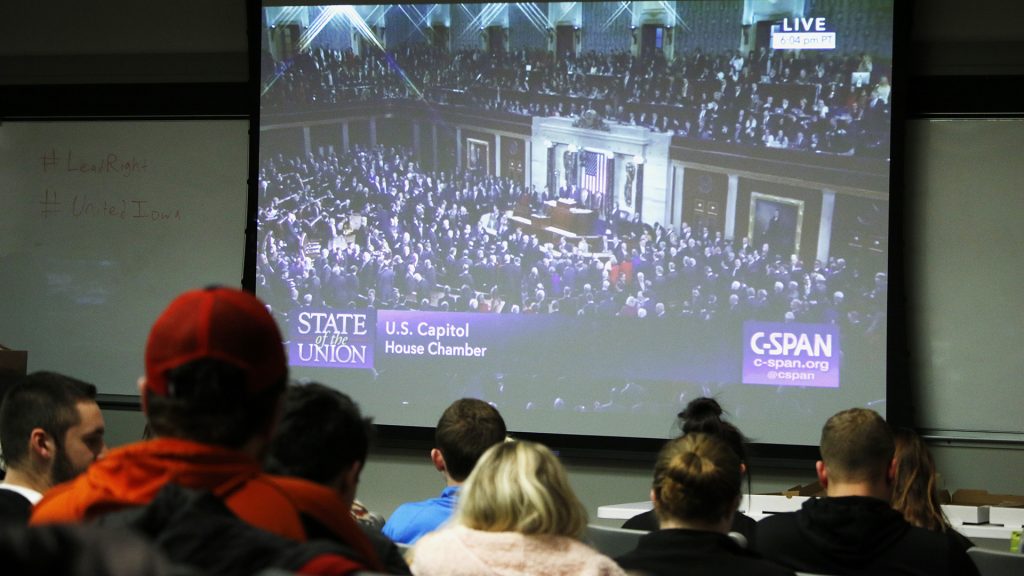Opinion: College Republicans school others on political fundraising
Other university-based political groups could learn from the GOP’s financial strategies.
The Daily Iowan; Photos by Katin
College Republicans listen to the State of the Union Address on Tuesday, Jan. 30, 2018 at the Pappajohn Business Building. The president discussed events that occurred throughout his first year of presidency. (Katina Zentz/ The Daily Iowan)
September 2, 2019
In a since-deleted Twitter thread, University of Iowa College Republicans created a great argument for raising money as a student organization — one that can be beneficial to all student groups and political activists across Iowa.
The UI College Republicans chapter responded to the thread with important insight that would avoid relying on the national party for donations. President of the chapter and UI senior Joshua Werges explains that every semester the chapter uses public information to identify major donors. The group then gathers, write letters about why contributions are necessary, and includes a return envelope and postage stamp. If a donation is received, members make sure to send a handwritten thank-you letter after.
This illustrates the divide between the two college wings of the two major political parties, at least in their fundraising methods. The Twitter Moment highlighted the disconnect between College Democrats and Democratic Party Chair Tom Perez. Multiple chapters in the thread pleaded for more funding from the Democratic National Committee when Perez wished them luck as they head back to school for the fall and gather critical votes for 2020 presidential candidates.
“Thinking about us is great, listening to us is better. Our budget is a tenth of what it was under previous chairs. When we advocate for progressive causes like the climate debate, we get stonewalled. The DNC needs to be pushing us forward, not holding us back,” writes a Twitter user included in the Moment. College Democratic chapters from Iowa to New Jersey participated in the thread.
Werges says that overall, the process takes the group three hours per semester.
As opposed to requesting money from the Republican National Committee, UI College Republicans take the time-consuming initiative and see positive results from their efforts. With a few reliable donors, they are able to grow their presence on campus by funding expenses for speakers and conferences for its members to attend.
Personally, I am not sure this strategy will be as effective towards liberal politics with the polarization on most campuses. Conservative organizations tend to need resources for events and speakers but organizing among college-aged students does not seem to be a priority for them, or a beneficial one at least.
The Iowa caucuses have brought massive attention to the state, making Iowa City a must-see stop for all presidential candidates. Students at the UI have benefited from attending these appearances but tweets from College Democratic chapters across the nation demonstrate that other areas of the country need resources for campuses to organize.
While this tactic does not transfer across all political groups, College Democratic chapters across the country can take a lesson from the UI College Republicans. Creating lasting relationships with donors can prove to be more useful than contacting national chapters, which are not as focused on college campuses. Overall, these relationships can go a long way for young activists with future careers in politics.





